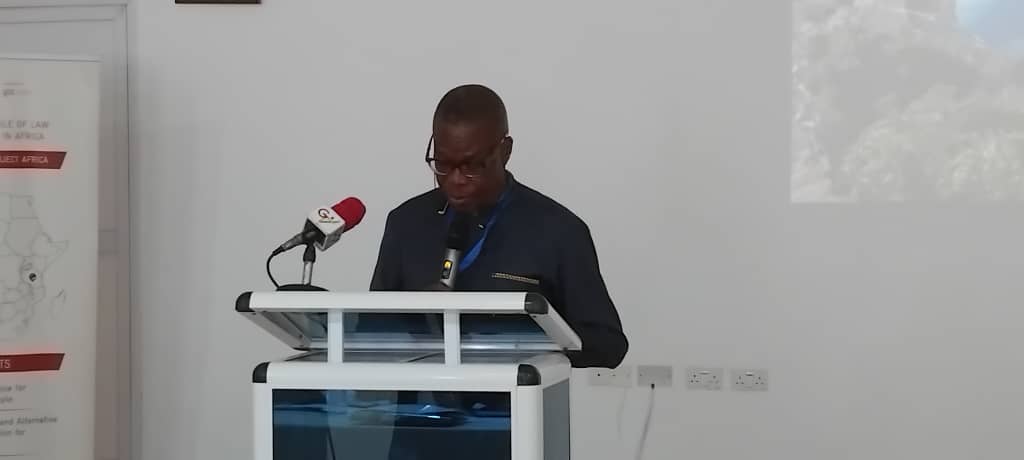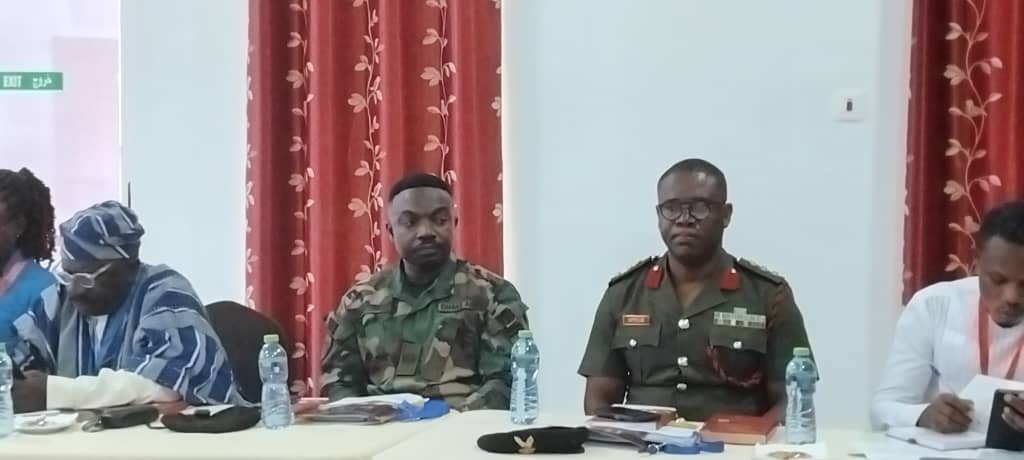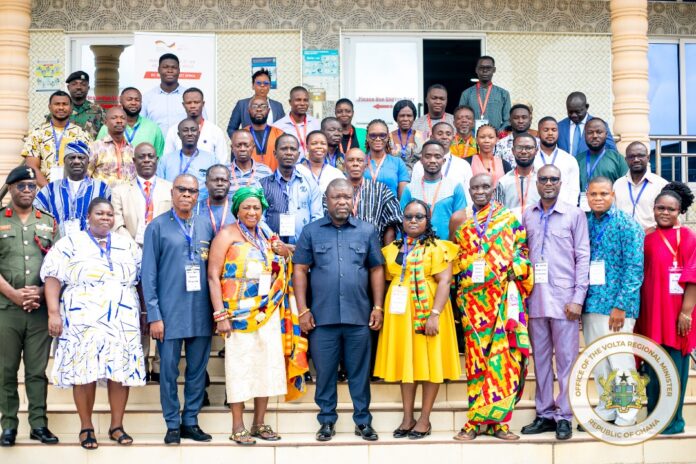Regional Peace Council (VRPC), led by Regional Executive Secretary Dr. David Esinu Yao Normanyo, has launched a landmark 40-hour Alternative Dispute Resolution (ADR) capacity-building workshop in Ho.
Supported by the GIZ Rule of Law Programme, the initiative brings together peace council officials from both the Volta and Oti Regions, aiming to bolster community-level conflict resolution capabilities.


Empowering Local Peacebuilding Mechanisms
GIZ Technical Advisor Yvette Kwami spoke for the Rule of Law team, reaffirming the importance of robust justice mechanisms rooted in non-violence and community trust. The training, she noted, is part of a broader commitment to enhancing the accessibility and fairness of dispute resolution—strengthening institutions that communities can turn to confidently.
Strategic Endorsement from Government Leadership
In his keynote address, Volta Regional Minister James Gunu described ADR as “a path that is faster, less expensive, and less adversarial than litigation,” vital for preserving relationships and promoting societal harmony across families, marketplaces, and institutions. He urged participants to actively translate their training into practical application, serving as peace ambassadors in their everyday interactions.
From Training to Transformation
Rev. Seth K. Mawutor, VRPC Chairman, characterized the workshop as a powerful example of collaborative peacebuilding. The program’s design—merging theory, real-world case studies, role-play simulations, and early warning recognition—aims to equip participants with tools to preempt conflict and foster reconciliation.
Embedding ADR into Governance and Community Life
Organizers emphasized that the workshop is more than short-term training—it represents the start of a long-term vision to integrate ADR into both governance structures and everyday community practices across the Volta and Oti Regions. The goal is to cultivate a culture in which disputes are resolved with dignity, mutual respect, and development-minded outcomes.
Why This Matters
Strengthening Democratic Resilience: In a diverse sociocultural landscape like Ghana’s, ADR strengthens local dispute-resolution capacity—preserving peace during evolving development dynamics.
Cost-Effective and Inclusive: By reducing reliance on costly court processes, ADR ensures more accessible justice, especially for rural and marginalized communities.
Trust-Building at the Grassroots: Empowering local peace actors helps foster communal trust, reinforcing social cohesion and preventing escalation before tensions become harmful.
Sustainable Partnerships: The collaboration between GIZ, regional governments, and local institutions signals a durable commitment to peacebuilding rooted in shared responsibility.
In summary: The GIZ–VRPC training represents a proactive investment in peace infrastructure—enhancing local capacity to manage disputes equitably, swiftly, and sustainably. It sets a hopeful precedent for embedding ADR into the fabric of regional governance and community life.
source: Ivy Priscilla Setordjie
READ ALSO:



